What are the functions map(), filter(), reduce()?
Practicing Coding Interview Questions in Python

Kirill Smirnov
Data Science Consultant, Altran
map()
map( )
map()
map( Iterable1, Iterable2, ...)
Iterables: [1, 2, 3, 4, 5], [10, 20, 30, 40, 50], ...
map()
map(function(x1, x2, ...), Iterable1, Iterable2, ...)
Iterables: [1, 2, 3, 4, 5], [10, 20, 30, 40, 50], ...
1, 10, ... $\rightarrow$ function(1, 10, ...) $\rightarrow$ new object
2, 20, ... $\rightarrow$ function(2, 20, ...) $\rightarrow$ new object
3, 30, ... $\rightarrow$ function(3, 30, ...) $\rightarrow$ new object
4, 40, ... $\rightarrow$ function(4, 40, ...) $\rightarrow$ new object
5, 50, ... $\rightarrow$ function(5, 50, ...) $\rightarrow$ new object
map() with single Iterable
nums = [1, 2, 3, 4, 5]
The task is to get [1, 4, 9, 16, 25]
def squared(x):
return x**2
squares = map(squared, nums)
print(squares)
<map object at 0x7fdbe4ab3da0>
squares is iterable
for square in squares:
print(square)
1
4
9
16
25
map() with single Iterable
nums = [1, 2, 3, 4, 5]
The task is to get [1, 4, 9, 16, 25]
def squared(x):
return x**2
squares = map(squared, nums)
print(squares)
<map object at 0x7fdbe4ab3da0>
squares is Iterable
list(squares)
[1, 4, 9, 16, 25]
map() with single Iterable
nums = [1, 2, 3, 4, 5]
The task is to get [1, 4, 9, 16, 25]
def squared(x):
return x**2
squares = map(squared, nums)
print(squares)
<map object at 0x7fdbe4ab3da0>
squares is Iterator
next(squares)
1
next(squares)
4
map() with lambda expressions
nums = [1, 2, 3, 4, 5]
The task is to get [1, 4, 9, 16, 25]
def squared(x):
return x**2
squares = map(squared, nums)
list(squares)
[1, 4, 9, 16, 25]
nums = [1, 2, 3, 4, 5]
The task is to get [1, 4, 9, 16, 25]
squares = map(lambda x: x**2, nums)
list(squares)
[1, 4, 9, 16, 25]
map() with multiple Iterables
nums1 = [1, 2, 3, 4, 5]
nums2 = [10, 20, 30, 40, 50]
The task is to get: [1*10, 2*20, 3*30, 4*40, 5*50] = [10, 40, 90, 160, 250]
mult = map(lambda x, y: x*y, nums1, nums2)
list(mult)
[10, 40, 90, 160, 250]
filter()
filter( )
filter()
filter( Iterable)
Iterable: [1, 2, 3, 4, 5]
filter()
filter(function(x), Iterable)
Iterable: [1, 2, 3, 4, 5]
1 $\rightarrow$ function(1) $\rightarrow$ True $\rightarrow$ 1 is kept
2 $\rightarrow$ function(2) $\rightarrow$ False $\rightarrow$ 2 is rejected
3 $\rightarrow$ function(3) $\rightarrow$ True $\rightarrow$ 3 is kept
4 $\rightarrow$ function(4) $\rightarrow$ False $\rightarrow$ 4 is rejected
5 $\rightarrow$ function(5) $\rightarrow$ True $\rightarrow$ 5 is kept
filter() example
nums = [-3, -2, -1, 0, 1, 2, 3]
The task is to get: [1, 2, 3]
def positive(x):
return x > 0
fobj = filter(positive, nums)
print(fobj)
<filter object at 0x7f196d378d68>
fobj is Iterable
for item in fobj:
print(item)
1
2
3
filter() example
nums = [-3, -2, -1, 0, 1, 2, 3]
The task is to get: [1, 2, 3]
def positive(x):
return x > 0
fobj = filter(positive, nums)
print(fobj)
<filter object at 0x7f196d378d68>
fobj is Iterable
list(fobj)
[1, 2, 3]
filter() example
nums = [-3, -2, -1, 0, 1, 2, 3]
The task is to get: [1, 2, 3]
def positive(x):
return x > 0
fobj = filter(positive, nums)
print(fobj)
<filter object at 0x7f196d378d68>
fobj is Iterator
next(fobj)
1
next(fobj)
4
filter() with lambda expressions
nums = [-3, -2, -1, 0, 1, 2, 3]
The task is to get: [1, 2, 3]
def positive(x):
return x > 0
fobj = filter(positive, nums)
list(fobj)
[1, 2, 3]
nums = [-3, -2, -1, 0, 1, 2, 3]
The task is to get: [1, 2, 3]
fobj = filter(lambda x: x > 0, nums)
list(fobj)
[1, 2, 3]
reduce()
from functools import reduce
reduce(function(x, y), Iterable)
Iterable: [1, 2, 3, 4, 5]
[1, 2, 3, 4, 5] $\rightarrow$ new object of the same type as the content
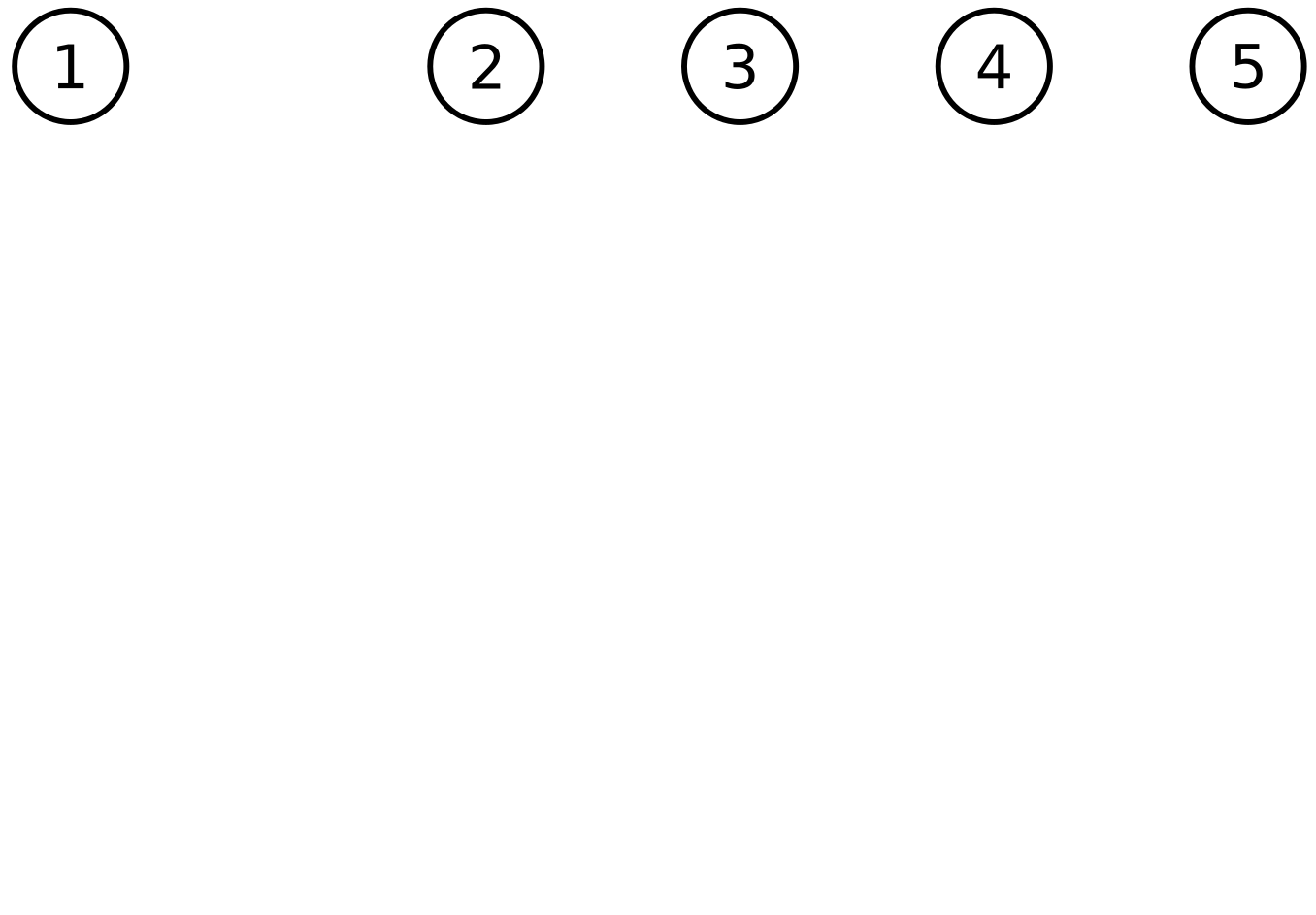
reduce()
from functools import reduce
reduce(function(x, y), Iterable)
Iterable: [1, 2, 3, 4, 5]
[1, 2, 3, 4, 5] $\rightarrow$ new object of the same type as the content
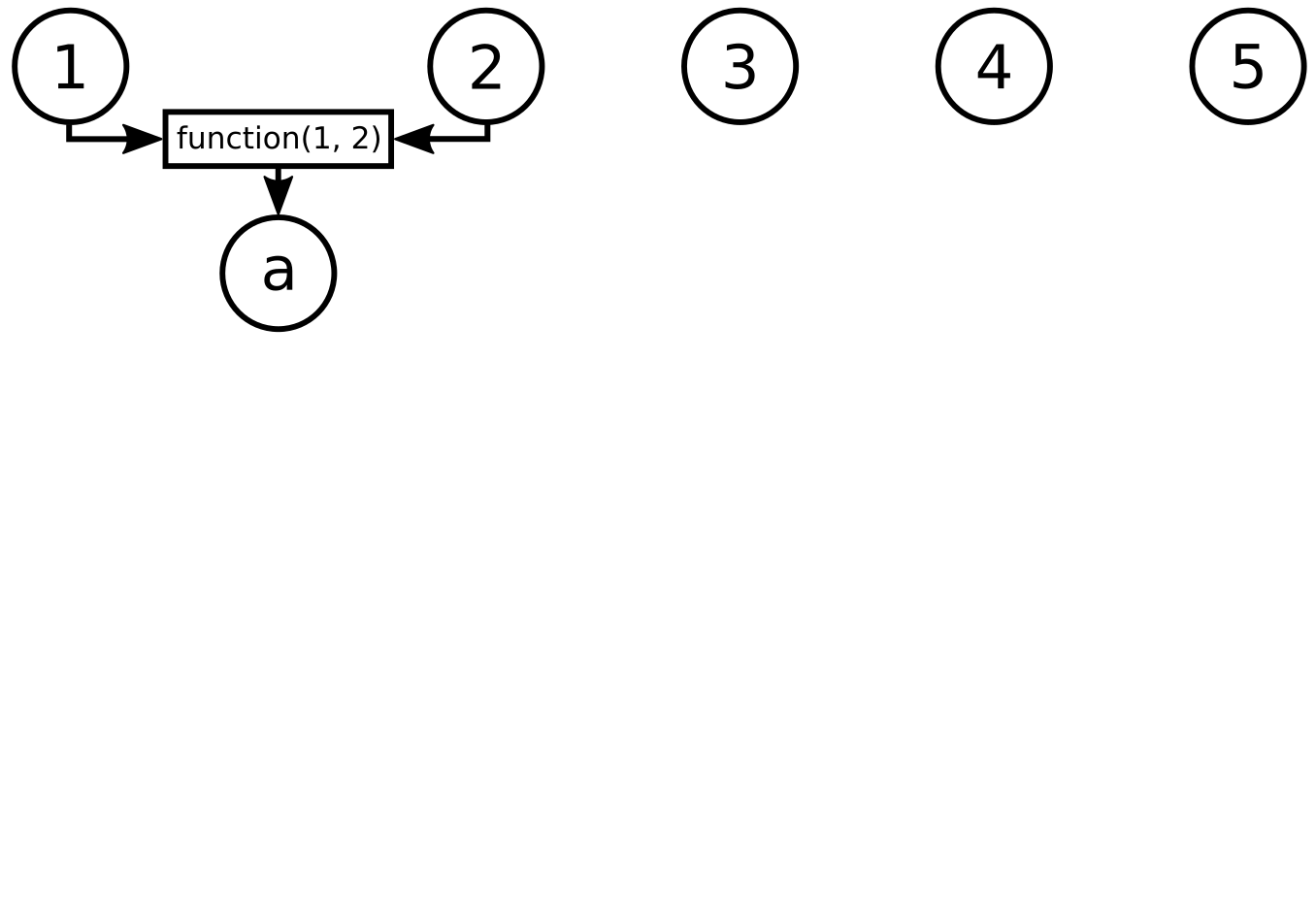
reduce()
from functools import reduce
reduce(function(x, y), Iterable)
Iterable: [1, 2, 3, 4, 5]
[1, 2, 3, 4, 5] $\rightarrow$ new object of the same type as the content
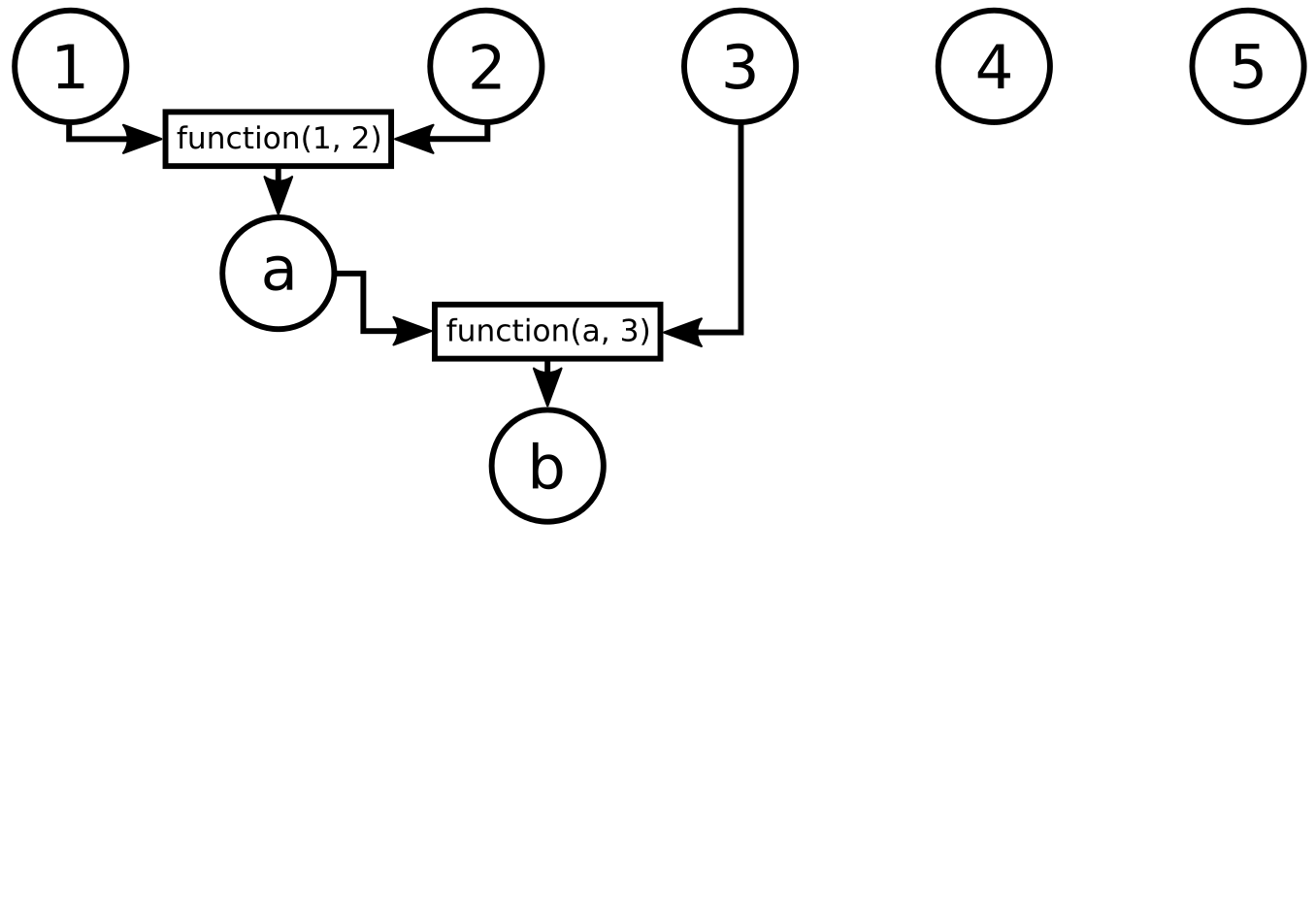
reduce()
from functools import reduce
reduce(function(x, y), Iterable)
Iterable: [1, 2, 3, 4, 5]
[1, 2, 3, 4, 5] $\rightarrow$ new object of the same type as the content
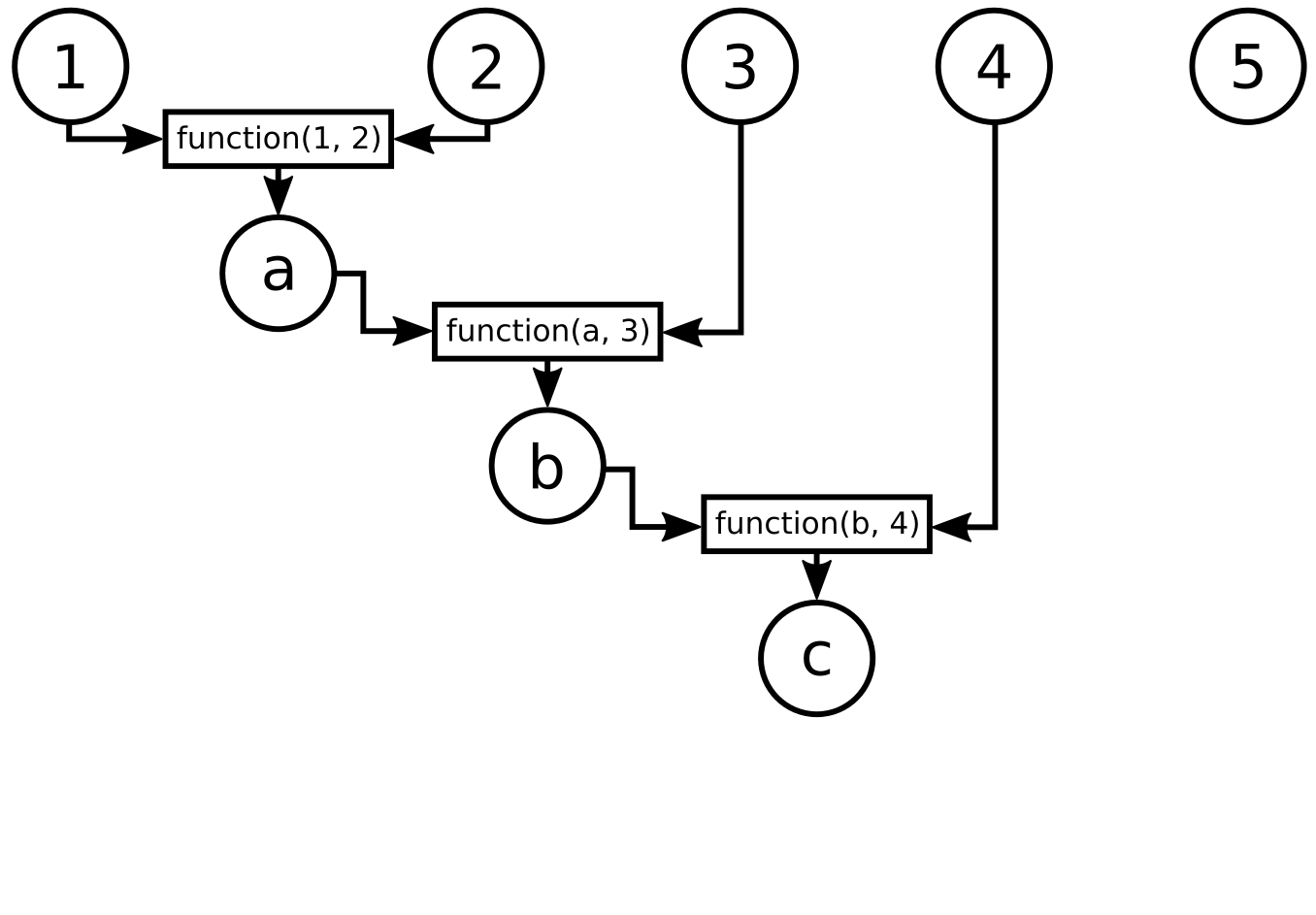
reduce()
from functools import reduce
reduce(function(x, y), Iterable)
Iterable: [1, 2, 3, 4, 5]
[1, 2, 3, 4, 5] $\rightarrow$ new object of the same type as the content
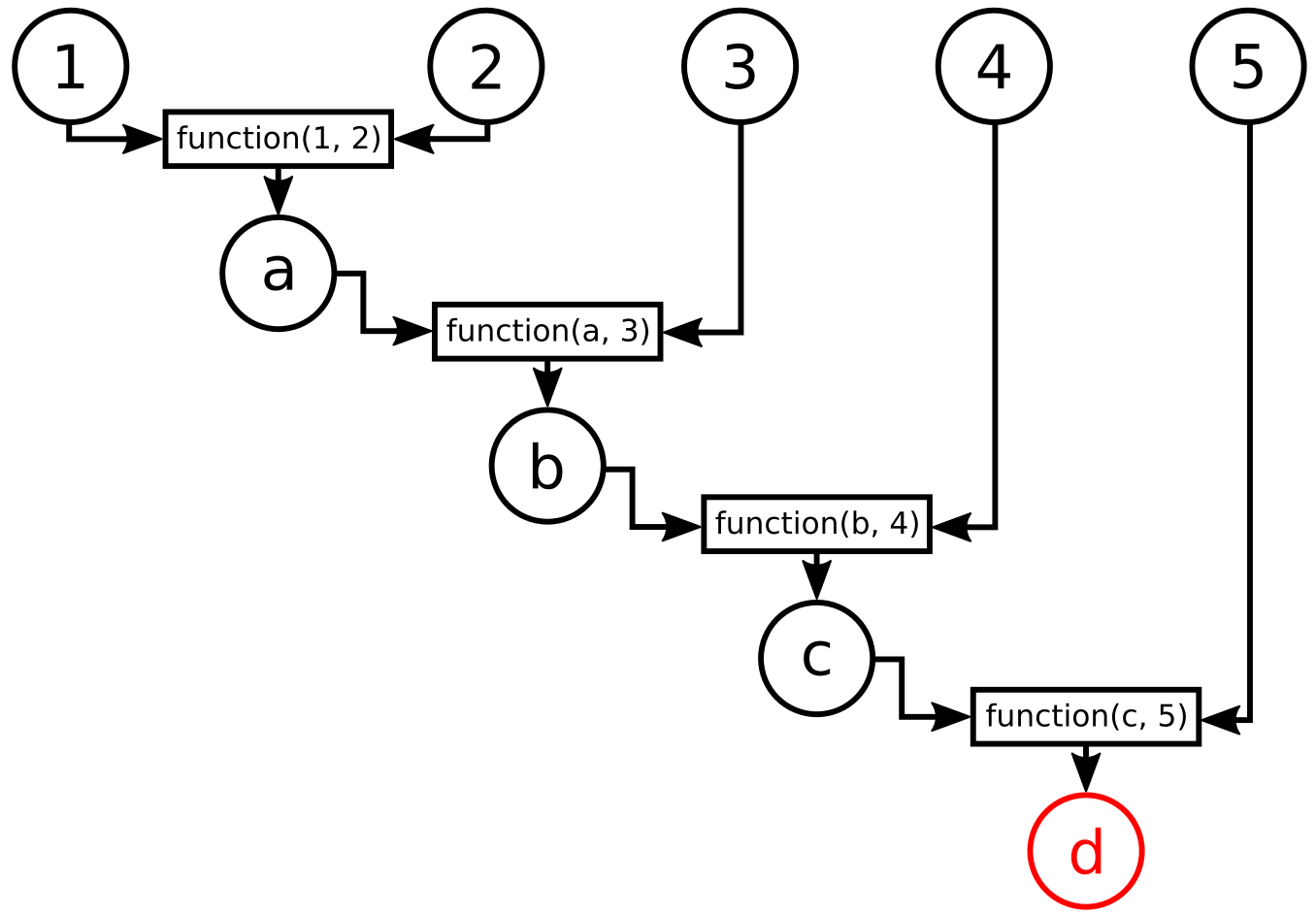
reduce() example
nums = [8, 4, 5, 1, 9]
The task is to get: 1 - minimum
def smallest(x, y):
if x < y:
return x
else:
return y
reduce(smallest, nums)
1
smallest(8, 4) $\rightarrow$ 4
smallest(4, 5) $\rightarrow$ 4
smallest(4, 1) $\rightarrow$ 1
smallest(1, 9) $\rightarrow$ 1 - final result
reduce() with lambda expressions
nums = [8, 1, 4, 2, 9]
The task is to get: 1 - minimum
def smallest(x, y):
if x < y:
return x
else:
return y
reduce(smallest, nums)
1
nums = [8, 1, 4, 2, 9]
The task is to get: 1 - minimum
reduce(lambda x, y: x if x < y else y, nums)
1
Let's practice!
Practicing Coding Interview Questions in Python

